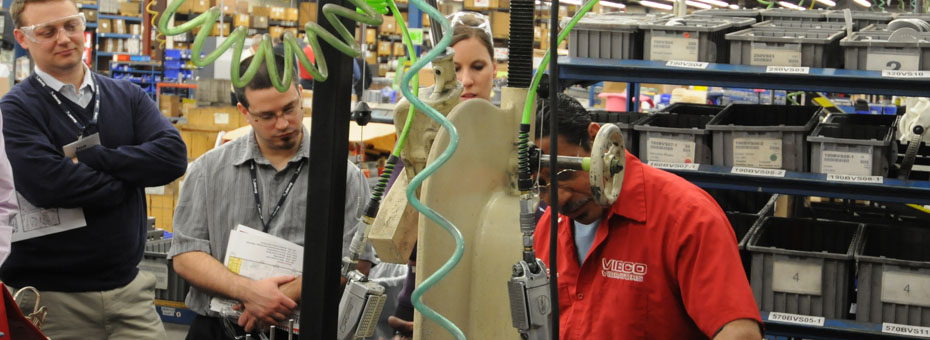What is the best way to navigate the tough challenge of coaching someone productively? What is the best way to both challenge the individual while providing sufficient space for them to own their personal learning? When is the best situation in which to intervene?
Such challenging questions are at the heart of this engaging dialogue between LEI’s Deb McGee and coach Jeff Smith. This Coachable podcast explores topics such as the importance of recognizing what is “normal” and what is “abnormal,” realizing a specific standard and understanding how to respond to performance compared to that standard, and designing work to ensure constant improvement.
The following excerpts are taken from the complete conversation, which can be heard here. Enjoy!
“When we were learning the A3 process at NUMMI and Toyota, one of the key points stressed was—when you’re away from the paper and pencil—to internalize the process through your experience. It didn’t matter what segment of the process you’re experiencing at that moment, the time to apply it is when you’re in the activity, such as doing a job or a particular function.”
“Having explicit standards—understanding what’s normal and abnormal—is crucial when you move into the experience. Understanding a standard and using your perception to ask, “Am I not meeting it? I’m either going beyond it or not achieving it, or I’m right on,” is really important. We have to experience that to know the next step to take. If I am achieving it, the question is: how do I get better? If I’m overachieving it, that suggests we might have too much capacity in play. If I’m underachieving it, maybe it’s method, or maybe it’s a bottleneck situation where I need some help. But I have to perceive the situate from the standard where I’m at or what the facts of the situation are.”
“Now, the traditional education systems typically teach, and it’s just my two cents, deductive problem solving. There’s a standard that’s known and you come up with reasons why you’re not meeting it, sort of like a little tree. And you test and verify all of them using a deductive approach to discover the severity of each of the things that are taking you off course. And then you try to correct them, minimize them, and meet the target. However, Toyota was very different. They would use inductive reasoning. They would be creative. There was a philosophy about where I should be, and where I’m at; or where the situation’s at, and they would put out a challenge to make it better. And so you were never just okay: you were always in a continuous cycle of learning.”





